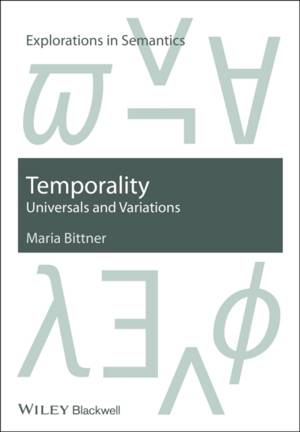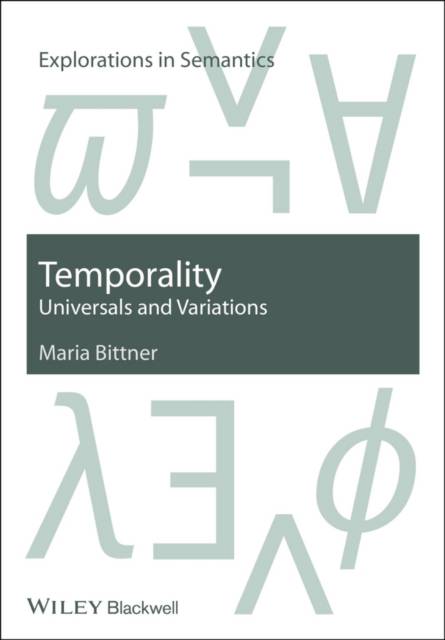
En raison d'une grêve chez bpost, votre commande pourrait être retardée. Vous avez besoin d’un livre rapidement ? Nos magasins vous accueillent à bras ouverts !
- Retrait gratuit dans votre magasin Club
- 7.000.000 titres dans notre catalogue
- Payer en toute sécurité
- Toujours un magasin près de chez vous
En raison de la grêve chez bpost, votre commande pourrait être retardée. Vous avez besoin d’un livre rapidement ? Nos magasins vous accueillent à bras ouverts !
- Retrait gratuit dans votre magasin Club
- 7.000.0000 titres dans notre catalogue
- Payer en toute sécurité
- Toujours un magasin près de chez vous
Description
Temporality surveys the ways in which languages of different types refer to past, present, and future events, through an in-depth examination of four major language types: tense-based English, tense-aspect-based Polish, aspect-based Chinese, and mood-based Kalaallisut.
- Cutting-edge research on directly compositional dynamic semantics of languages with and without grammatical tense
- New in-depth analysis of temporal, aspectual, modal, as well as nominal discourse reference
- Presents a novel logical language for representing linguistic meaning (Update with Centering)
- Develops a unified theory of tense, aspect, mood, and person as different types of 'grammatical centering systems'
Spécifications
Parties prenantes
- Auteur(s) :
- Editeur:
Contenu
- Nombre de pages :
- 348
- Langue:
- Anglais
- Collection :
Caractéristiques
- EAN:
- 9781405190404
- Date de parution :
- 27-05-14
- Format:
- Livre relié
- Format numérique:
- Genaaid
- Dimensions :
- 168 mm x 241 mm
- Poids :
- 544 g

Les avis
Nous publions uniquement les avis qui respectent les conditions requises. Consultez nos conditions pour les avis.






